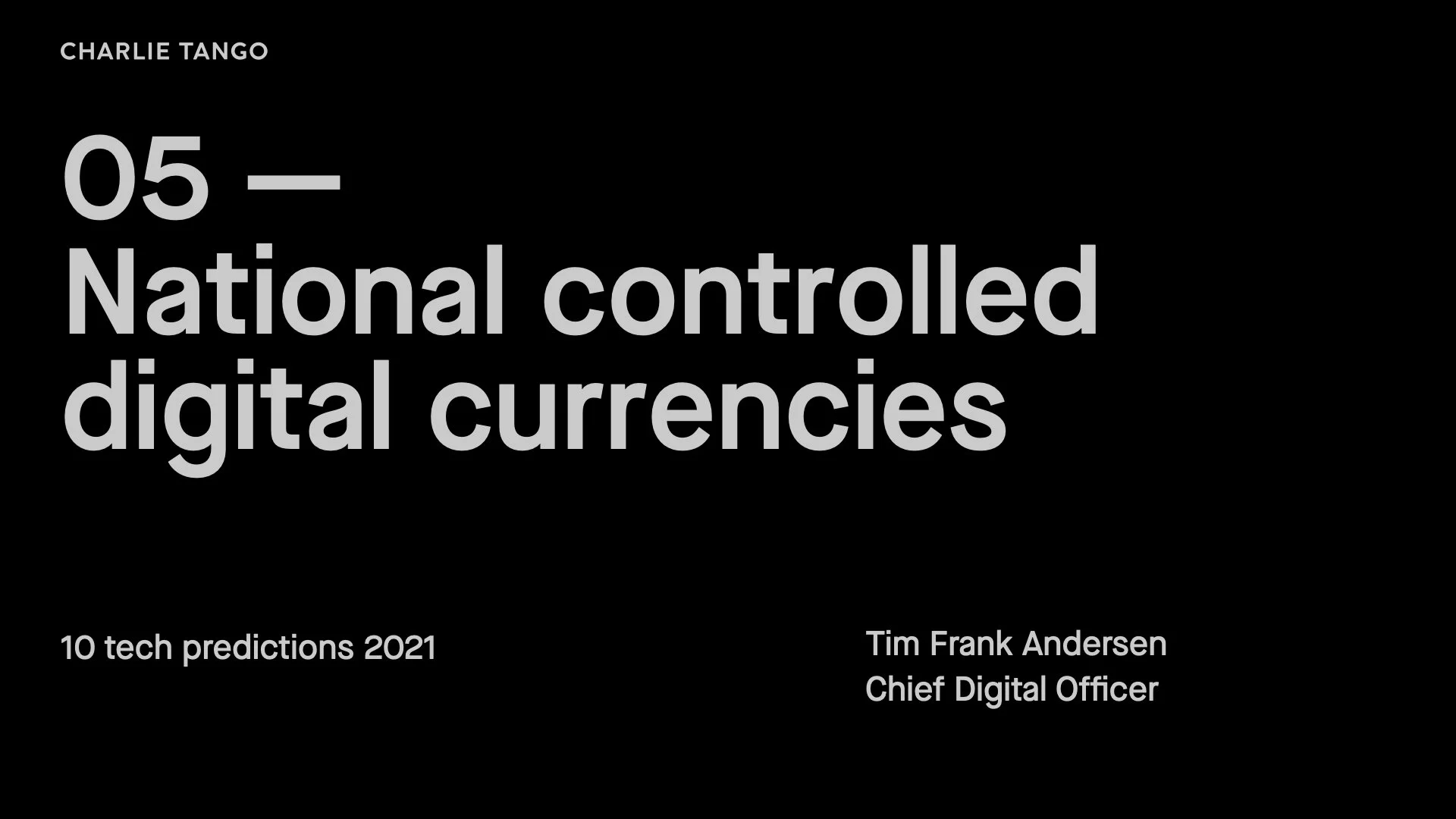National controlled digital currencies
Last year, I predicted that Facebook Libra would be released in 2020 amidst a lot of criticism and skepticism. But this year, we will take it up a notch in the battle for the future of money.
China, and several other countries, have for a long time been heading towards a cashless society and the Corona crisis has just pushed that development further, with the risk of getting infected by physical money.
At the same time, the Chinese government has lost power and control to the likes of Alibaba and Tencent, which today are responsible for four out of five payments in China and hence know more about the consumers and their purchasing patterns than the government. And the government fears a world where the future global digital currency could end up being controlled by, for example, the Libra corporation headed by Facebook.
Alibaba and Tencent control 4 out of five mobile payments in China
The race to reinvent money has started
Therefore, China is speeding up the roll-out and issuance of the world’s first central bank digital currency: DCEP (Digital Currency Electronic Payment).
It will not be a cryptocurrency per se. It’s more a digital version of the Yuan, issued and backed by the central bank. But it will share some similarities with cryptos, like getting rid of the middlemen and its support for smart contracts.
To test it out and get the ball rolling, China’s central bank in October 2020 issued ten million yuan (app. $1.5m) worth of digital currency to 50,000 people in the Shenzhen area picked through a lottery, to which more than two million signed up. This digital cash can now be used for travelling, in stores and to purchase food and beverage from the likes of Starbucks and McDonalds.
The difference between the Chinese solutions and services like Apple Pay, Google Pay, and the like is that Apple Pay works as a wallet, but the transaction still has to go through several stages, such as your bank. The Chinese version, however, is the actual money in the wallet. So, when you transfer the money from one phone to another, the digital asset is moved directly.
One of the downsides to this solution is, of course, that the Chinese government will know every digital transaction you make and, on top of that, they will be able to control access to your money. And if you combine that with the Chinese social credit system, it could mean that if you don´t act as a ‘good citizen,’ access to your money may be frozen!
China might link their Social Credit system with the access to your money
China is far from being the only country investigating and experimenting with the development of a central bank controlled digital currency (CBDC). Central bank authorities across the world are looking into the potential of digital currencies and how they should be managed.
Earlier this month, a group of seven central banks, including Sveriges Riksbank and Bank of Canada, published a report describing a set of common guiding principles for central bank-issued digital currencies.
And, according to the Bank for International Settlements (BIS), at least 17 governments are considering or testing out some form of digital currency.
So, it will be an international competition of the utmost importance. Because when it happens, the reinvention of money towards a digital age will be kickstarted. China invented paper banknotes back in the eleventh century, and now it also looks like they are ahead in the race to invent and launch the first national digital currency.
I predict that we will see the first major roll-out of a CBDC in 2021.




